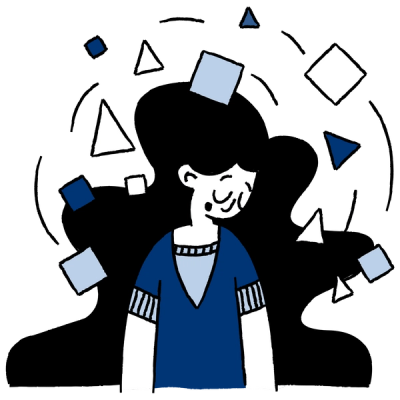Practical things you can do to feel better in the moment
Immediately after the event
If you or someone you know has just experienced a traumatic event, there are some immediate steps you can take:
- In cases of physical or sexual assault and other injuries, you can contact emergency services on 000.
- To report a crime, you can call or visit your local police station.
- Reach out to a close friend or relative for support. Sometimes it can be hard to tell someone else about your experience. If it feels safer and more comfortable, you can always contact Lifeline.
It’s normal to feel anger, guilt, shame, anxiety or numbness, but remember everyone responds to traumatic experiences differently, and there is no right or wrong reaction. It may be helpful to learn more about the common effects of trauma here.
Healing can take time and support, but many people start to feel better after about a month. If your symptoms get worse or last longer, you may want to consider seeking additional support.
For specific symptoms
Trauma can show up in different ways for different people. Depending on what symptoms you experience, there are a variety of strategies you can use to help you cope in the moment. There are also ways you can manage trauma in the long term on the following page.
For now, here are some strategies that can give you relief in the moment.
- If you’re feeling anxious, frightened, angry, or on-edge
It’s normal to feel a range of emotions after going through something traumatic. Most of the time, the emotions you feel will be the result of your nervous system being on overdrive.
Here are a few things you can try right now:
- Freewriting: This is where you set a timer for yourself and you simply write whatever comes to your mind. Set a time limit that works for you, whether 5, 10, 15 minutes or more. Try not to censor anything, just write what comes up for you. When you’re done writing, read the entry back to yourself and see if there’s anything that stands out to you. The act of writing out your thoughts alone can be enough to clear and calm your mind when it is overactive. Research has shown simply naming the emotions you’re feeling can significantly reduce their power over you.
- Progressive muscle relaxation: This is a relaxation strategy that helps reduce anxiety and promotes calmness. It’s quite easy to practice progressive muscle relaxation — all you need to start is a quiet space, free from any distractions. Then, either sitting or lying down, you will tense and relax different muscle groups, starting from your feet and ending at your head. Here are some guidelines you can follow:
- To begin with, focus on your feet. Inhale deeply and contract your feet for 5 to 10 seconds. Then, exhale for another 5 to 10 seconds and release any tension in your feet.
- Next, move on to your calves. Again, inhale deeply and contract your calf muscles for 5 to 10 seconds. Then, exhale for another 5 to 10 seconds releasing any tension in your calves.
- Repeat this with every muscle group in your body as you move up toward your head. When you release the tension from your muscles, try to focus on how your muscles feel when they’re relaxed. You can also imagine any stress and anxiety leaving your body as you relax your muscles.
- Visualisation: Imagining somewhere peaceful can help ease anxious thoughts and feelings. That’s because when we visualise, our brains process what we imagine in much the same way they would if we were really there. Just imagining being someplace calm and serene can help you feel that way. The next time you’re feeling anxious, close your eyes and try to imagine you’re somewhere safe and peaceful.
- Listen to a soothing playlist: Research shows that listening to music can help calm the nervous system and lower stress levels. You can create your own playlist that you can put on when you’re feeling tense to help you relax. If you’re not sure what music to choose, classical and jazz music tend to have a soothing effect.
- Do something relaxing: Write out a list of things that help you relax and use them when you’re feeling especially anxious. It could include things like taking a warm bubble bath, reading your favourite author, sitting in the park, or doing yoga.
- Try mindful eating or drinking: For example, make a hot beverage, such as a herbal tea. With each sip, focus on something different you can sense, whether it’s the taste, smell, colour of the tea, weight of the cup, or reflections of light on the surface.
- Practise self-care: When practising self-care, it can feel comforting to have easy access to all of your favourite things. Making a self-care box is a bit like preparing a first-aid kit for your mental health. It doesn’t have to be physical either – you might like to just write a list that reminds you of your favourite things.
- Box breathing: Box breathing is a grounding technique that can help you regain a sense of calm in the present moment. Watch the video below to try it now.
- If you’re reliving the trauma through intrusive thoughts, flashbacks, or nightmares
- If you’re having panic attacks
- If you’re experiencing dissociation or you keep zoning out
- If you feel the urge to self-harm or are thinking of suicide
Tips for looking after yourself after a traumatic event
Practicing self-care is important for maintaining your mental health after experiencing something traumatic.
Here are some ways that you can look after yourself:
- Be kind to yourself
After experiencing something traumatic, it’s common to feel guilt and shame or question whether you could have done something differently. Although these reactions are normal, they are not helpful.
Blaming yourself for what happened is your mind’s way of trying to make sense of something terrible that shouldn’t have happened. Remember, you did what you had to in order to cope and stay safe.
- Keep to a routine
- Reach out for support
- Do activities that you enjoy
- Focus on what you can control
Your mind may be consumed by fears and concerns about the past and future. Focusing on what you cannot control can leave you feeling powerless and helpless. It’s more helpful to focus on the things you can control as this will give you a sense of empowerment.
Examples of things you can control include:
- Eating healthily
- Staying active
- Getting enough sleep
- Keeping to a routine
- Getting professional support.
- Eat a healthy, balanced diet
Research shows that what we eat and drink can impact how we feel and how we cope with distressing feelings.
Here are some nutrition guidelines you can follow that can help you cope better:
- Eat complex carbohydrates — these are digested more slowly which creates a calmer feeling. Complex carbs are things like fruit and vegetables, wholemeal bread and pasta, and beans.
- Stay hydrated.
- Limit or avoid alcohol. A drink might calm your nerves in the moment, but it can negatively impact your mood and sleep as your body processes it.
- Limit or avoid caffeine and high-sugar foods. They can make you feel irritable, jittery or nervous.
- Eat foods with omega-3, including avocado, tuna, salmon, and olive oil.
- Avoid alcohol and other substances
If you’re feeling anxious, it can often be helpful to avoid substances. Substances can significantly alter our physical state, emotions and thinking patterns, which can have big effects on our feelings of anxiety.
So try to reduce of avoid the following substances in particular:
- Caffeine
- Alcohol
- Ecstasy
- Meth/ice.









